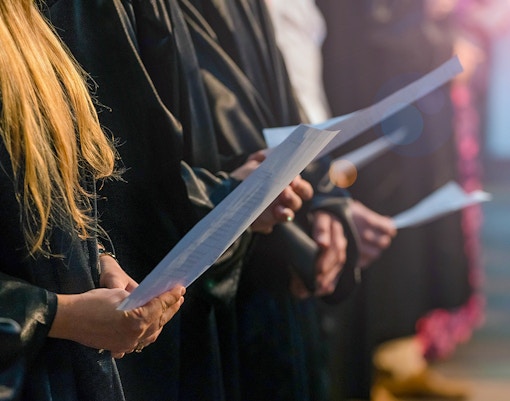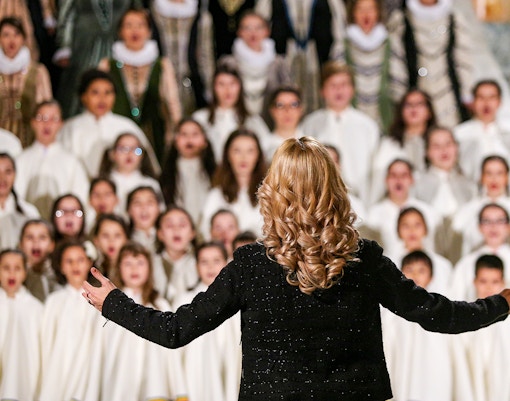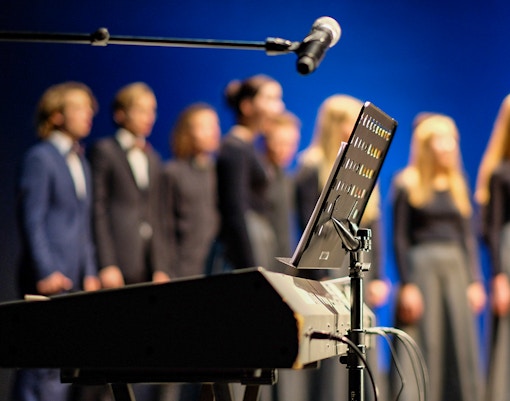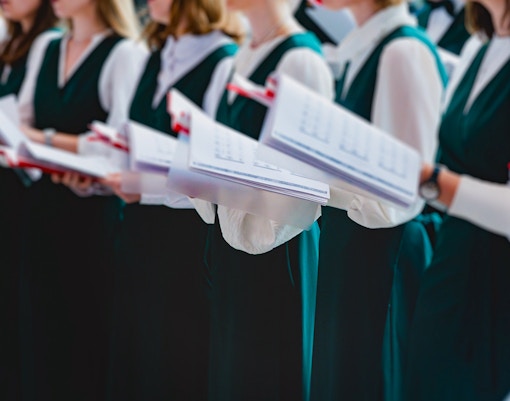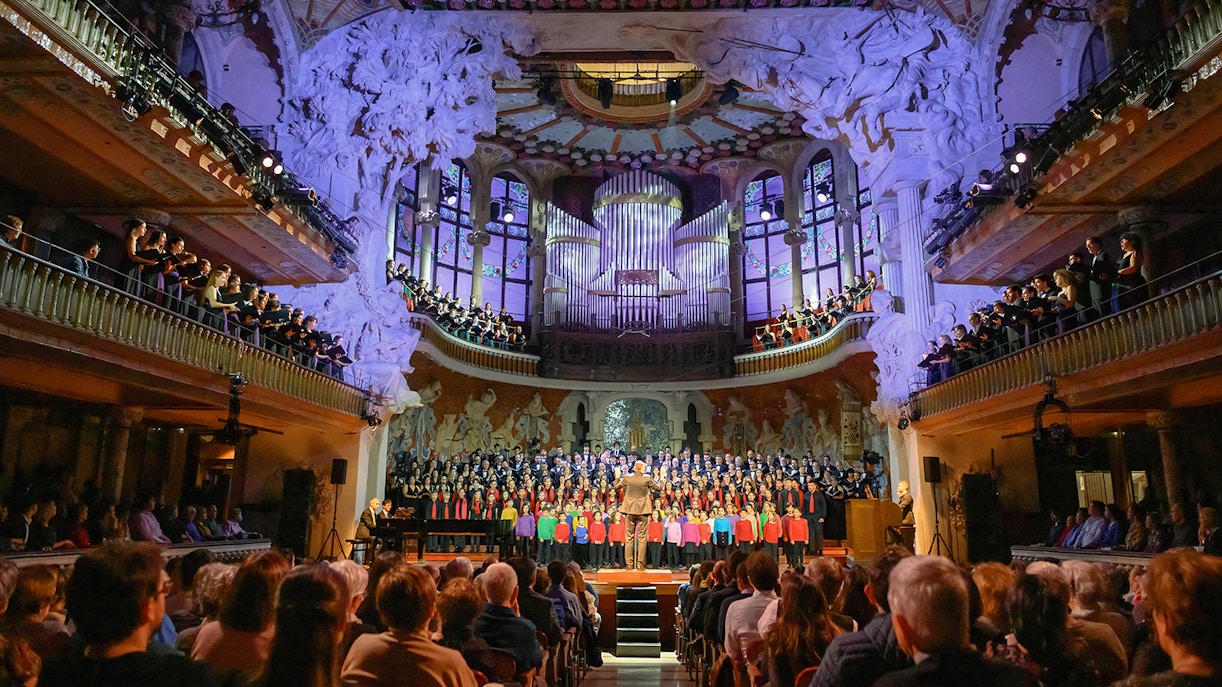- Bach’s Mass in B Minor: As one of the most complex and celebrated compositions in choral music, the Orfeó Català’s performance introduced Spanish audiences to the beauty of this Baroque masterpiece. This performance showcased the choir's artistic capabilities and played a crucial role in elevating the appreciation of choral music within the country.
- Haydn’s The Seasons: The choir's rendition of Haydn’s The Seasons was another landmark event, as it was the first time this grand oratorio was performed in Spain. This performance was essential to showcase the depth and dynamism of Haydn's work to Spanish audiences for the first time.
Main performances of the Orfeó Català
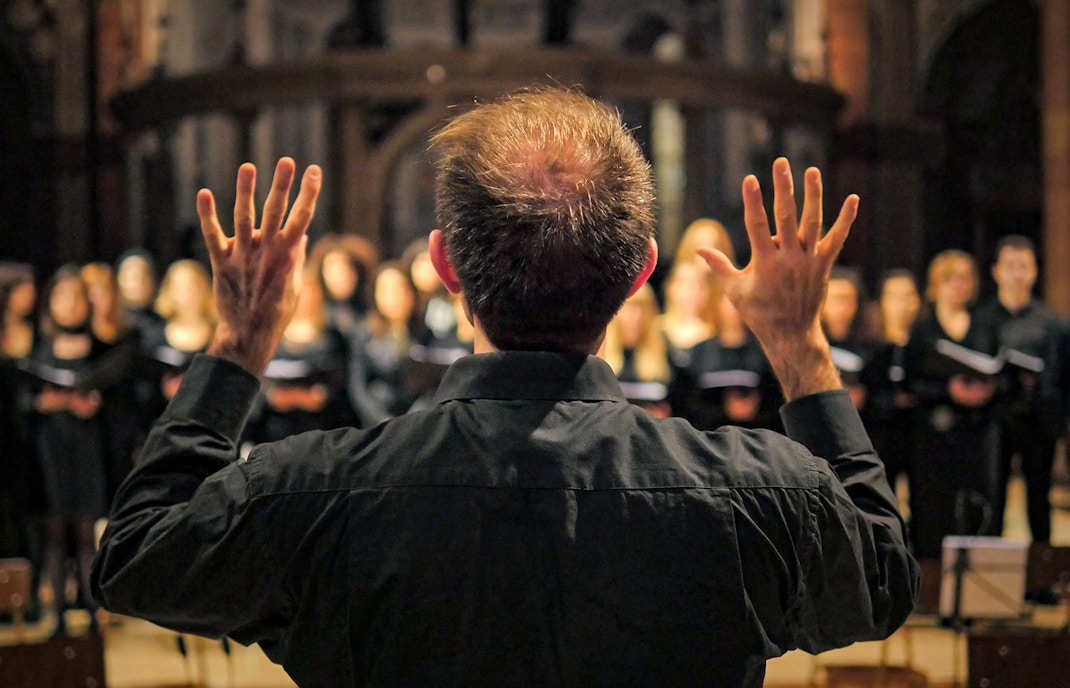
First performances in Spain
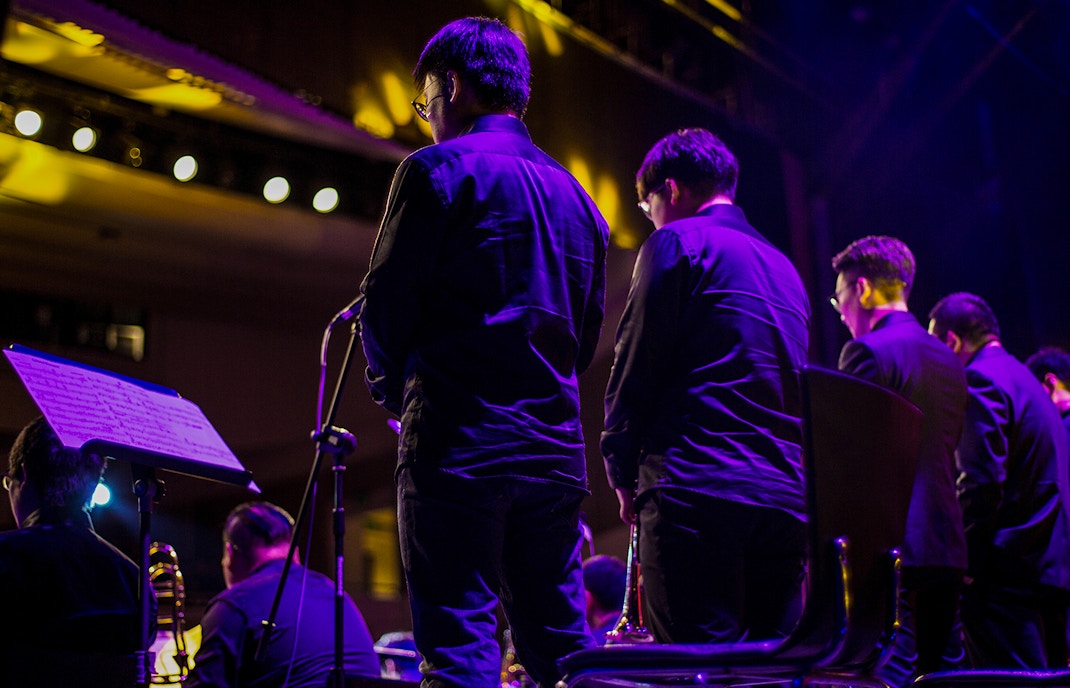
Mozart’s Coronation Mass
The Orfeó Català has had the honor of performing at the iconic Sagrada Família, one of Barcelona's most famous landmarks. They performed The Coronation Mass, one of Mozart's most celebrated liturgical compositions in collaboration with the famous Berliner Philharmoniker choir group.
The acoustics of the Sagrada Família not only provide a remarkable backdrop for choral music, but also allows the Orfeó Català to honor its musical heritage and engage with both locals and visitors
